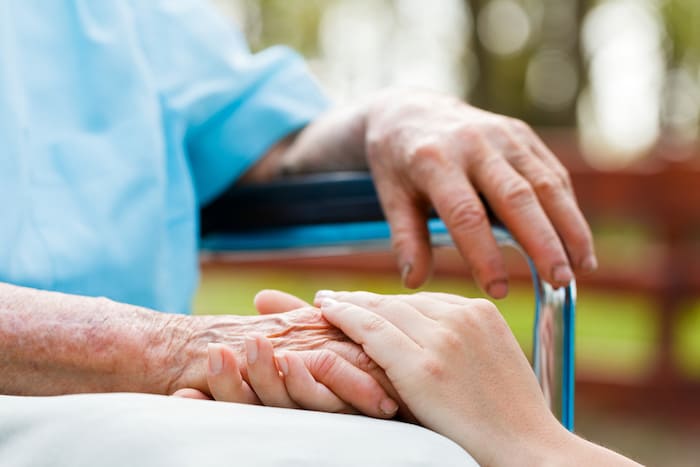
Elder abuse is something that most of us have to increasingly think about. Americans, and in particular the Baby Boomer generation, are vulnerable to elder abuse, and it can happen in different settings and situations.
For example, if you have an aging parent or grandparent, you may have to consider the risk of elder abuse if they have a home healthcare provider or companion, or if you’re choosing a residential facility for them.
Elder abuse is more common than most of us might realize as well. In fact, 10% of Americans over 60 have experienced some form of elder abuse.
So what should you know about elder abuse, recognizing the signs, and what to do if you suspect it?
What Is Elder Abuse?
There are different kinds of elder abuse, which can include:
- Physical abuse (bodily harm)
- Emotional abuse, such as yelling, threatening or saying unkind things
- Neglect
- Abandonment
- Sexual abuse
There are also perhaps less obvious types of abuse that can be inflicted onto older people, including financial abuse and healthcare fraud. Financial abuse is difficult to uncover—more so than some of the more overt forms of elder abuse.
It can include taking someone’s Social Security benefits or doing things like changing names on wills, bank accounts, or life insurance policies.
The World Health Organization has a very broad definition of elder abuse. They describe it as either a single or repeated act that’s inappropriate and causes harm or distress to an older person. Even unintentional neglect can be considered elder abuse.
While any older person can be a victim of elder abuse, it’s most common with women more so than men. People without family nearby, people with disabilities and people with dementia may also be more targeted.
When an older person relies on others for daily activities, they are more likely to be victims of abuse as well.
How Can You Spot Elder Abuse?
The signs of elder abuse that’s physical can be easier to spot. For example, older people who are victims of physical abuse may seem traumatized, violent, or agitated. They may have unexplained marks such as bruises or burns on their body, they may look dirty or unkempt, or they could be withdrawn.
Signs of financial abuse can include missing checks, payments not being made on time, or accounts with insufficient funds. The people who most often inflict financial abuse are family members.
How Do You Report Elder Abuse?
Reporting elder abuse can be somewhat challenging, even though most states have laws mandating that you do report it. There are Adult Protective Services in all 50 states around the country.
One of the reasons it can be difficult to report elder abuse is because it can be challenging to document and prove.
If you do believe something is going on that constitutes abuse, you should start by taking written note as to what you see as being wrong or off. If there are injuries, take photos as well as making notes of the injuries.
Talk to any potential witnesses and the victim, and write down what they say is happening too.
If it’s a situation where the abuse is potentially severe, you should contact the police right away.
If you work at a facility and you believe abuse is going on, you can contact the ombudsman program in your state, which will work to investigate complaints. You can report potential abuse anonymously so that you don’t have to worry about retribution from your employer.
Elder Abuse Prevention
Finally, preventing elder abuse is important. Being proactive is better than trying to determine after the fact that abuse has occurred. If you’re a caregiver, make sure that you are taking care of yourself to avoid becoming burned out or frustrated in your role.
If you are the loved one of someone who may be receiving elder care, do your research before deciding on a caregiver or facility. This can include getting references, interviewing caregivers carefully,and visiting facilities to see what they’re like before making any decision.
Sometimes it’s better to hire a professional caregiver rather than having a family member be the caregiver as well, not only because of a professional’s qualifications but again because the risk of certain forms of abuse such as financial abuse is higher from family members.
Always look for caregivers or facilities with experience not just with general caregiving, but in the specific areas your loved one needs help.
Throughout the year, our writers feature fresh, in-depth, and relevant information for our audience of 40,000+ healthcare leaders and professionals. As a healthcare business publication, we cover and cherish our relationship with the entire health care industry including administrators, nurses, physicians, physical therapists, pharmacists, and more. We cover a broad spectrum from hospitals to medical offices to outpatient services to eye surgery centers to university settings. We focus on rehabilitation, nursing homes, home care, hospice as well as men’s health, women’s heath, and pediatrics.







